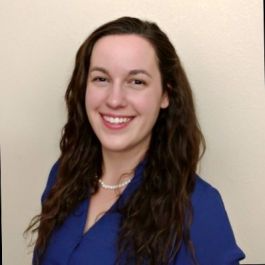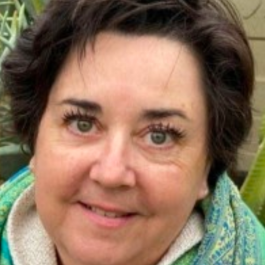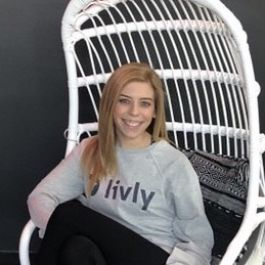In 2012, very few people had the words “customer success” in their LinkedIn job titles, according to the book “Outside In: The Power of Putting Customers at the Center of Your Business.”
But with the rapid advancement of software as a subscription (SaaS) and cloud technology, tech companies realized they needed customer success teams to ensure customers were using their technology products, realizing ongoing value and paying their bills. By 2020, the job title “customer success specialist” was sixth among the 15 fastest-growing white-collar jobs in the U.S., according to Forbes.
So, what do people with this job title that was virtually unheard of a decade ago actually do?
We asked seven CSMs to find out.
Elizabeth Bukys, a CSM at data import software company Flatfile, said she acts as the bridge between customers and internal teams, like product development and engineering. She relies on listening to her intuition to understand what the customer wants, as well as clear communication with internal support teams to ensure they get it.
But soft skills aren’t all Bukys relies on. She said automation tools are her “secret weapon” that allow her to interact more meaningfully with customers and prioritize their goals internally.
Much like Bukys, the other CSMs also shared specific attributes — like organization and curiosity — that allow them to act as extensions of their customers’ teams. In order for them to succeed in their positions, they said they must first identify their customers’ business goals and approach every situation with a people-first mentality.
After all, that’s the only way to build relationships with customers and coworkers alike.
What is a Customer Success Manager?
RingCentral
Capri Kera
CUSTOMER SUCCESS MANAGER

CSM Capri Kera said customers treat her like an extension of their teams. And part of being on a team means frequent communication, which Kera engages in through the RingCentral app, a collaborative software tool. Constant contact with customers means quicker customer adoption and increased usage, she explained.
Give us a glimpse into a typical day in your role as a customer success manager.
We have a people-first mentality and measure success by how successful we are at helping our customers. Because we're so close to our customers, we can quickly relay their pain points and goals to our internal teams, like product development and engineering. This ensures our solutions are ever-evolving to provide greater value.
We have a people-first mentality and measure success by how successful we are at helping our customers.”
What’s something you do in your role as a CSM that would surprise most people?
I was chosen to be a member of our customer success advisory board, which is a board of select customer success managers who relay feedback from internal and external stakeholders to upper management to ensure all voices are heard and progressive solutions are implemented.
I also co-lead a committee that creates our executive business review presentation. This is a deck the customer success organization leverages to conduct strategic meetings with C-Level executive customers to funnel growth, mitigate churn and inform future product development decisions.
Lastly, I am trusted to be a part of interviewing new candidates to ensure we are selecting talent from all backgrounds.
What are the three most important skills needed to be a good customer success manager?
Be a creative problem-solver: We don’t live by a set of cookie-cutter guidelines. No two customers are the same. We ask the right questions, engage the right people and recommend the right solutions.
Have a people-first mentality: I live by the mantra “people, product, processes.” Putting people first helps us develop our products in a way that makes our customers and company successful. This strengthens the processes we follow on a daily basis. With our customers in mind, we know the right people to engage internally and externally to ensure that success.
Instill tenacious communication: When there seems to be a roadblock, we do not stop. We leave no stone unturned, put in the extra time and clearly communicate what needs to happen to reach success.
Flatfile Inc.
Elizabeth Bukys
HEAD OF CUSTOMER SUCCESS

Head of Customer Success Elizabeth Bukys said her team is the bridge between customers and internal teams at Flatfile. As such, they must engage frequently and meaningfully with customers. Automation tools help with that.
Give us a glimpse into a typical day in your role as a customer success manager.
I’m frequently meeting with customers to better understand how they’re engaging with the product and then share relevant information to help them. I take that feedback back to our team so they can understand how to help customers better drive business results with our software. Everything I do is geared towards fostering a long-term relationship with clients and users focused on value realization.
I take what I learn from both sides of the relationship and apply that to creating materials and setting up communication channels that drive understanding between everyone. The findings and mental models help both clients and our internal teams. Our success team is meant to serve as the bridge between each one of our customers and Flatfile.
Higher efficiency here means we get to engage more frequently at a meaningful level.”
What’s something you do in your role as a CSM that would surprise most people?
Automation increases the amount of customization and personal attention we’re able to give. It’s probably contrary to what we’re used to as users, where a brand’s automation means you’re stuck navigating endless phone menus and chatbots. Success is different and I love it. Higher efficiency here means we get to engage more frequently at a meaningful level because it lets us prioritize what matters.
What are the three most important skills needed to be a good customer success manager?
Be insanely organized: Good organizational skills and systems are critical, and it’s the first thing I’d recommend developing.
Have good mental models: As a customer success manager, it’s so much easier to tell when something is outside the norm for a customer if you have a mental model of how it’s “supposed” to be. Learning to create them intentionally is invaluable. When you create them around subjects that you need to understand, anything outside of it is immediately recognized and able to be explored.
Be curious: A curious customer success manager naturally wants to know more about a company they’re working with, its goals, and the “why” behind what the people they’re talking to care about. It’s exhausting if you have to fake interest. For someone curious, it’s not tiring; it’s really exciting.
Greenhouse Software
John Abplanalp
SENIOR CUSTOMER SUCCESS MANAGER

Senior Customer Success Manager John Abplanalp said working cross-functionally with internal teams ensures his customers are supported at hiring software company Greenhouse. On the customer side, Abplanalp acts as a strategic partner for their talent acquisition teams and helps identify their long-term and short-term goals. High emotional intelligence is required when working cross-functionally and with the customer, he said.
Give us a glimpse into a typical day in your role as a customer success manager.
Typically, a workday revolves around partnering with customers on their product usage strategy or current talent acquisition initiatives. I’m also working cross-functionally with various internal teams such as support, product, professional services and sales to help ensure our customers are supported.
I rely heavily on our tech stack, such as Gainsight, to monitor customer health, log touchpoints and identify accounts that could use proactive outreach or nurturing. Additionally, I’m consistently preparing for a future quarterly business review and product strategy session with my contacts.
We’re strategic partners and considered to be an extension of our customers’ talent acquisition teams.”
What’s something you do in your role as a CSM that would surprise most people?
Based on my experience, most people assume we’re primarily responsible for helping out with product questions or escalations. In reality, we’re strategic partners and considered to be an extension of our customers’ talent acquisition teams; we advise them on best practices and how to effectively drive change management to meet both short-term and long-term goals. We want to ensure our customers have identified clear goals and KPIs so we know what success looks like for their team.
What are the three most important skills needed to be a good customer success manager?
Resilience: When working with a variety of organizations, it’s pretty common that our customers’ needs are constantly evolving throughout the year. Every week, we are prepared for the unexpected and quickly identify the resources to help meet the complex needs of their business.
Emotional intelligence: There are times in the role where we need to deliver difficult information or push back on certain customer requests. Understanding how to deliver that information in a way that does not negatively impact the customer relationship or partnership is crucial in this role. On the flip side, EQ is also an important factor when working cross-functionally with different teams. This role is collaborative so understanding how to effectively work with other teams internally will ultimately determine success as a CSM.
Adaptability: The teams we work with can fluctuate throughout the year so it’s important to adapt to the changes within the organization and the different types of customer personalities. Also, it’s important to know the audience for our meetings so we can effectively craft an agenda.
Milyli
Jeffrey Levinson
SENIOR CUSTOMER ADVOCATE

“There’s immense professional and personal pride in cutting three months off a customer project by spending a half-hour troubleshooting over emails,” Jeffrey Levinson, senior customer advocate at Milyli, said.
Levinson explained why creatively solving customer challenges is the nature of his job at the e-discovery services platform.
What are your primary duties on a typical day?
First, I prioritize my calendared tasks and identify what can be completed during the workday. Then I dive into ticket responses from our customers. After a ticket is closed, I analyze and document the issue, the correspondence with the customer and the resolution, especially if it required internal collaboration. Doing so allows my team and the product org to learn from each ticket. I also own and maintain our education materials.
Most of my work is creative problem-solving.”
What’s something you do in your role that would surprise most people?
Most people might think of customer advocacy as answering tickets and talking on the phone all day. However, I collaborate with other teams and our CEO more than some might expect. Working across the standard lines of an org structure allows us to uncover what our customers actually want and need from us, even if they differ from the needs they had when they became customers.
Tasks may start with an email, but most of my work is creative problem-solving within our products and the e-discovery platform, Relativity. Our customers love to come up with new workflows using our tools. Often, I’m needed to help get things running smoothly rather than “fixing” something technical. “Where can we cut out steps?” is a question I get a lot, and it’s an exciting, always-different problem-solving scenario.
What are the three most important skills needed to be a good customer success manager?
Listen to what a customer does and doesn’t say. Be a customer’s advocate, not just a support associate. Challenge your customer’s and team’s status quo when things can be better. We share educational materials and use cases because it’s vital to how we retain and grow business.
However, a dynamic where a customer advocate can offer new ideas requires active listening. If a customer’s product use declines or they bring up the same complaint repeatedly, it’s crucial that the entire Milyli team hears. Someone has to pay attention to what customers are saying and doing, and I love that I get to do that.
project44
Jen Kraska
SENIOR DIRECTOR OF CUSTOMER OPERATIONS

Jen Kraska, the senior director of customer operations at logistics company project44, has over a decade of customer service experience. She said one of the things her tenure has taught her is that CSMs are well-suited to make sales because they have ongoing insight into how products can solve clients’ needs.
What are your primary duties on a typical day?
I oversee our CS team that ensures we obsess over the customer. From the beginning of the sales cycle process, CS is working in concert with each team across the organization to deliver a smooth onboarding process. We provide customer feedback from the frontlines, work hand-in-hand with the product and engineering teams, and help define market signals.
Coming from a long career in CS, I found that the best way to learn about a new product or industry is to speak directly with the customers. I recently joined the p44 team, and it’s been fascinating to learn about an entirely new industry and SaaS product while also being able to tie in my CS operational background.
CS could be the most prominent sales function in any organization.”
What’s something you do in your role that would surprise most people?
The biggest myth about CS is that often it’s not considered a “sales” role. However, in reality, CS could be the most prominent sales function in any organization. It’s on us to continue to educate the customer about the value that our product delivers and identify consumption gaps.
What do you look for in a good customer success manager?
Given that we work with a wide variety of customers, it’s crucial that we have team members joining project44 from different walks of life. On top of being a great culture add, we look for ambitious people that own their career path. We also look for accountable team members — as we are held to high standards from our customers — who are also passionate about creating the best customer journey.
Envysion
Amy Boswell
SENIOR CSM

CSMs at video-based analytic software company Envysion must be resilient and able to multitask, Senior CSM Amy Boswell said. For her, it’s important to build and maintain relations with customers in today’s virtual climate. Even when remote, professionalism and creativity go a long way in accomplishing this, she added.
Give us a glimpse into a typical day in your role as a customer success manager.
Every day, our aim is to drive user adoption of Envysion’s managed video solution through onboarding, user training and troubleshooting. A typical day unfolds pretty naturally relative to the pain points and queries that present themselves as they press on planned events. The effective Envysion CSM juggles the planned with the unexpected by employing essential support skills.
We have created a team portal that houses the myriad of standard operating procedures (SOPs), slide decks and forms needed to provide consistent and accurate support to our customers. We meet weekly to foster professional development, tackling topics such as leveraging team member strengths and change adaption. We rotate the lead on the development meeting weekly, so all team members are stakeholders in both teaching and learning.
Every day, our aim is to drive user adoption through onboarding, user training and troubleshooting.”
What’s something you do in your role as a CSM that would surprise most people?
The insight we have into our customer’s operations via our managed video solution really takes people by surprise. We can view live video of sites and evaluate transactions to uncover theft, loss and operational issues in real time. The amount of time and effort that is saved via our solution is very attractive to our customers. It’s a real thrill to see them light up with enthusiasm when they realize that they can use our tool to transform their businesses.
What are the three most important skills needed to be a good customer success manager?
Resilience: The ability to bounce back and roll with change is absolutely necessary. The requirement of growing healthy customer relationships has not changed even though the environment that we operate in has been turned upside down. The resilient Envysion CSM finds the path to solutions within any environment.
Multitasking: A key requirement is to be able to triage effectively to use time efficiently. There will always be more tasks than there are hours in the workday. The effective multitasking CSM faces this challenge with aplomb by sorting all issues well and attacking them appropriately.
Relationship management: This is especially important now when we cannot travel to visit and train our customers or interact with them at professional events. We had to pivot to curate relationships virtually to provide training, business reviews and calls to best serve all customers on their journey with us. Effective relationship management is necessary both with customers and within our organization. We can’t grow good customer relationships if we don’t do the same with our colleagues.
Livly
Hannah Gordon
Customer Success Manager

Livly Customer Success Manager Hannah Gordon said her work allows her to make real connections with people while also evolving her skills. Being a CSM at the property management software company has forced her to hone her organizational skills to service her clients, which, in turn, has helped her clients achieve countless milestones.
What are your primary duties on a typical day?
I work closely with property managers and their teams who typically work long hours and weekends. So I start my day answering customer emails that came in on my off-hours. Then I look at all of my clients who are onboarding. Each client is at a different step in the process, so I update each of them on their progress, plan next steps and host trainings.
Hosting trainings is one of the more time-consuming, but fun, parts of my day. I teach clients how they can utilize our products to make their residents happier. I love sharing our product and seeing others get excited about using it.
In one week, I can have ten trainings, eight meetings and countless calls with my team and clients.”
What’s something you do in your role that would surprise most people?
The relationships we build with clients. I learn so much about clients as individuals. I had a lot to learn about property management when I joined Livly, and my clients supported my interest in learning about their roles and day-to-day tasks. Together we celebrated promotions, new building launches, birthdays and much more. Internally, we consider ourselves family and we welcome our clients into our community.
What are the three most important skills needed to be a good customer success manager?
Positivity, patience and organization. Positivity is so important because whatever mood I am in will directly affect my client calls and trainings. If I go into a call upbeat and excited, clients will be as well. Patience is also crucial because CSMs are expected to be experts on our product, but we are always working with users who are new to it. Some clients need more time and attention to learn a new process, so remembering to be patient as others learn is vital.
Lastly, organization. I am not the most type-A person, so I had to train myself to be very organized. In one week, I can have ten trainings, eight meetings and countless calls with my team and clients. At any given time, I need to know a client’s details, who their contacts are, and their progress with onboarding and engagement. It’s a lot to handle at the start, but staying organized is so important for success.





